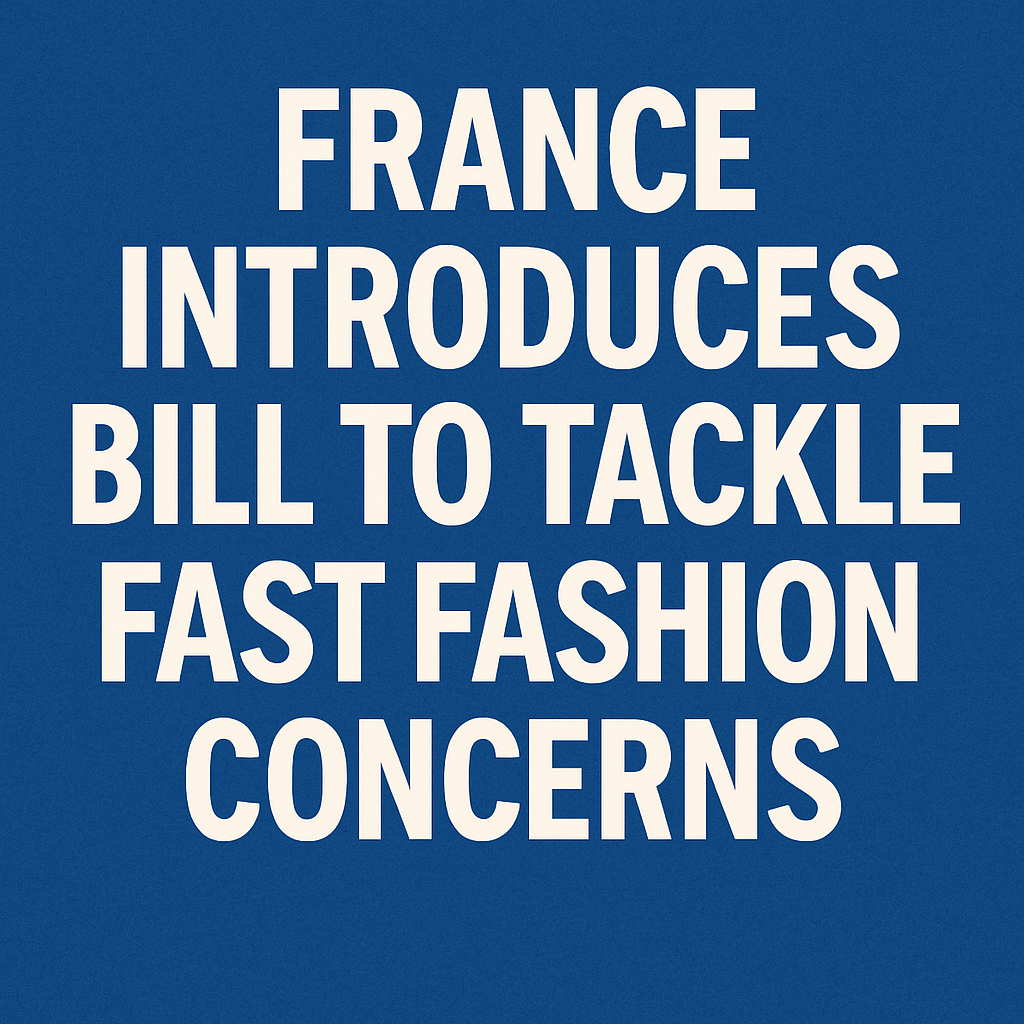France Introduces Bill to Tackle Fast Fashion Concerns

On Monday, the French Senate engaged in a heated debate concerning a legislative proposal aimed at regulating the influx of environmentally damaging and low-quality garments, primarily from Chinese manufacturers. This initiative reflects the increasing concern over sustainability and consumer protection in the fast fashion industry.
The Fast Fashion Bill: Background and Current Status
The National Assembly, France’s lower house of parliament, had approved an earlier version of the fast fashion bill in March 2022. However, the Senate’s right-leaning commission has been vocal about the need for amendments. The primary goal of these changes is to enforce stricter regulations targeting Chinese-founded fast fashion brands such as Shein, which have come under scrutiny for their production practices.
Environmental Concerns and Economic Impacts
According to recent statistics from the French environment agency, a staggering 35 items of clothing are discarded every second in France, shedding light on the unsustainable consumer behavior fueled by fast fashion. This massive waste not only contributes to environmental degradation but also undermines local fashion businesses.
Sylvie Valente Le Hir, a senator representing the right-wing Republicans party, expressed concerns about the competitive landscape, stating that the “Chinese giants of ultra-fast fashion” present an unfair advantage to local brands. She articulated the need to establish stringent rules that will significantly penalize such brands for their environmental impacts, stating, “We need to establish rules, hit them as hard as possible.”
Key Provisions of the Proposed Legislation
The proposed legislation aims to create a comprehensive framework to define and regulate fast fashion based on several metrics:
- Production Rates: Establishing thresholds for how quickly brands turn around new collections.
- Item Lifespan: Assessing the durability and longevity of garments produced.
- Repair Incentives: Evaluating how brands encourage consumers to repair rather than discard their clothing.
Under this bill, companies that produce low-quality, throwaway clothing will be mandated to disclose the environmental costs associated with their products. This disclosure aims to enhance consumer awareness regarding the ecological footprints of their purchases.
Sanctions and Eco-labelling Controversy
Another significant aspect of the bill is the proposed imposition of sanctions tied to environmental impacts. While the National Assembly initially favored a system based on eco-labelling – where garments would be scored based on their ecological effects – this measure was removed during the Senate’s review. Senators now propose assessing punitive actions based on the sustainability practices and commercial behaviors of e-commerce platforms.
This revision is anticipated to facilitate increased regulation over platforms like Shein, ensuring local brands are preserved and enhancing the competitive landscape for European businesses. Senator Le Hir emphasized the necessity of safeguarding affordable options for the French populace while transitioning towards more sustainable practices.
Reactions from Environmental and Human Rights Groups
The proposed modifications to the bill have drawn criticism from various non-governmental organizations (NGOs), including Stop Fast Fashion. These groups argue that the adjustments render the legislation ineffective, calling it an “empty shell” that lacks meaningful deterrents against environmentally harmful practices.
NGOs such as Friends of the Earth France and the Observatory of Multinationals have intensified calls for oversight of Shein’s operations in France, alleging irregularities in the company’s lobbying practices. These organizations are advocating for a more aggressive regulatory framework that would compel fast fashion retailers to enhance their sustainability efforts.
Conclusion: The Future of Fast Fashion in France
As discussions continue, the outcome of the bill could significantly shape the future of the fast fashion industry in France. With growing public consciousness surrounding sustainability, this legislative effort could set a precedent for how other countries address similar challenges posed by the fast fashion market. The ongoing scrutiny of brands like Shein and the emerging framework for regulations reflect an essential shift in consumer expectations regarding environmental responsibility in the fashion industry.
Source: fortune